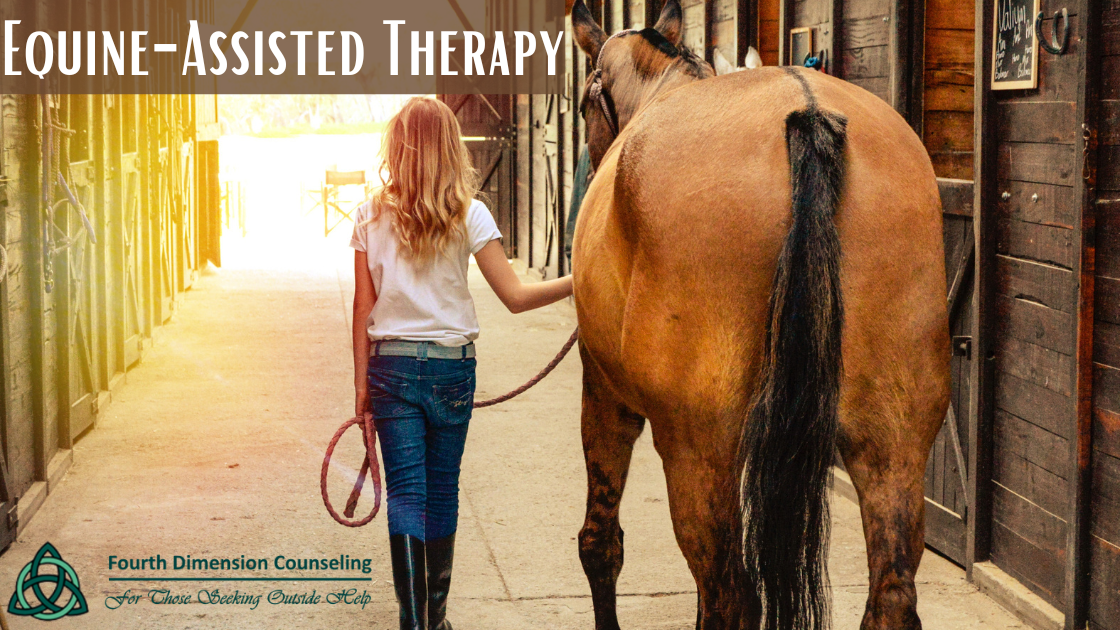
Equine-assisted therapy, also referred to as horse therapy, is a kind of mental treatment whereby a person in therapy interacts and cares for horses. Meant for all age groups, equine therapy has proven itself to treat several mental health conditions, looking into problems both physically and psychologically.
People who need help with equine therapy work hand in hand with psychotherapists who are experts in equine therapy and horse trainers who are well aware of horses’ therapeutic application, even though one person can take on both of these roles.
Equine Assisted Therapy For Mental Health
Let’s face it, a horse barn hardly seems like a casual place for serious mental health treatment. However, most people find equine-assisted therapy very healthy and beneficial. Equine-assisted therapy is typically a team effort whereby a mental health practitioner works with a horse trainer or specialist. People who partake in equine-assisted therapy mainly need help with their conditions in terms of emotions and behavior.
In equine therapy, clients are provided with highly trained horses and they learn how to care for them properly. This form of therapy focuses more on learning how to care for the animals and not only riding them. Therapy with horses goes along with strategies such as cognitive behavioral and experiential therapy.
Benefits Of Equine Assisted Therapy
Yes, lots of animals can help out with the whole psychotherapeutic process, but horses, in particular, pose certain unique traits that have made people prefer horses for any kind of animal-assisted therapy. The following are the unique traits that horses offer to the assisted therapy process.
Non-Judgmental Nature
Humans, especially therapists, do their very best to provide clients with a safe one-on-one space to express their emotions and hurtful experiences, but still, clients find it a bit uncomfortable to express their thoughts openly. With the presence of a horse, clients could feel an atmosphere of peace, given that the horse only reacts to the client’s behaviors without any kind of judgment of their experiences.
Feedback
If not any other thing, horses are very good observers, and they are also sensitive and vigilant to certain movements and emotions. Horses usually give feedback on a client’s behavior, posing a strong connection that makes the client feel safe. This, in turn, lets the client maintain that sense of self-awareness, using how the horse behaves as feedback to better understand what is going on at the moment.
Managing Weakness
As people find it challenging when trying to share their emotional challenges, hurtful past experiences, or even hard life transitions, equine-assisted therapy and horses can help as they provide reference points for processing. If a particular life experience feels too painful to share with others, it may feel less challenging for a client to process using the horse present as an instance, as well as linking their past life experience with the horse’s experience at that moment. Approaching the therapy this way can help ease up the whole process.
Other Benefits
Other benefits associated with equine-assisted therapy include the following:
- Increased adaptability
- Impulse control
- Distress tolerance
- Independence
- Emotional awareness
- Improved self-esteem
- Better social relationships
- Social awareness
Conclusion
Even as equine-assisted therapy offers a series of advantages, there are as well things to note. People who have health problems like scoliosis, down syndrome, or spina bifida should visit a physician before trying out equine-assisted therapy for the first time. Riding a horse can change the course of spinal stability, so this may not be suitable for people with back problems. It is best to meet with your therapist when you are considering any new mode of treatment just to be sure it is well suitable for you.
Learn More about Equine Assisted Therapy at Fourth Dimension Healing Ranch here
More Advice:
- Do I Need to See a Counselor for Love Addiction?
- Simple Ways to Reduce Stress
- Sex Victims Can Experience PTSD
- Emotions and How to Process Them
- Sex Addiction Counseling
- How Do I Know it’s Time to Get professional Counseling?
- How to Heal from Betrayal Trauma
- What is PTSD?
- The Mental Health Effects of Sexual Abuse
- The 4 Types of Intimacy
- 5 Ways to Reduce Stress
- What is Co-Dependency?
- How Same-Sex Couples Counseling is Different
- How to Know it’s Time to Get Mental Help
- How to Find a Great Relationship Counselor
- What if I Can’t Get in to See a Counselor?
